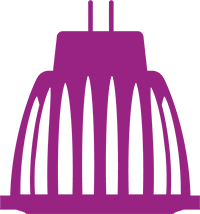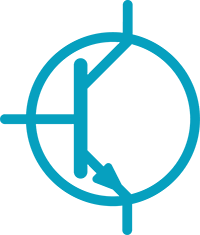Where is EMSA’s work focus over the next few years?
A new Policy Brief gives an overview of EMSA’s work focus until 2029 and highlights relevant work outcomes to date.
Governments with effective, mature, energy efficiency programmes covering a diverse range of appliances and equipment.
National and regional governments are represented by entities responsible for energy efficiency policy.
The International Energy Agency (IEA) works with governments and industry to shape a secure and sustainable energy future for all.
Stay up to date with the latest news stories from the IEA below:
Collaborative research and development activities are undertaken within the 4E Platforms, connecting governments with experts and industry. Each target technology areas with a large potential for energy savings where a sustained focus builds knowledge and networks.
A new Policy Brief gives an overview of EMSA’s work focus until 2029 and highlights relevant work outcomes to date.
Looking back over the past 15 years, experience shows that collaboration across governments, industry and experts — supported by sound analysis, aligned standards and practical tools — can help improve the efficiency of electric motor systems. EMSA has contributed to this shared learning by providing evidence, guidance and platforms for exchange, supporting ongoing efforts to improve policies, standards and real-world outcomes worldwide.
An EMSA workshop will be held on 23 February 2026 in Vienna. The workshop language is German.
This Policy Brief gives an overview of EMSA’s work focus until 2029 and highlights relevant work outcomes to date.
This report summarises the test results of EMSA’s international round robin testing programme, exchanging two commercial, packaged electric motor-driven screw compressors between three laboratories worldwide. It includes a practical guide for measuring specific energy and isentropic efficiency of packaged air compressors in line with ISO 1217:2009 and Amendment 1:2016.
This Policy Brief assesses the importance of electric motor systems in the global energy system. In 2023, electric motor systems were responsible for 53% of global electricity consumption. Their share in electricity consumption varies widely across sectors: 72% in industry, 36% in buildings, 87% in agriculture and 86% in the transportation sector.
The accurate and repeatable testing of products is a basic requirement for energy efficiency programmes and therefore improving tests for variable capacity air conditioners & heat pumps is important. It is particularly timely given the growth in these types of products. 4E is examining potential changes to relevant test procedures culminating in a round robin within 4E countries which will be completed at the end of 2022.
As part of an ongoing investigation, 4E launched a new project in 2021 to better understand the real and current barriers to regulatory policies for systems in 4E jurisdictions. Based on three case studies, the project will focus on Australia, Canada, the EU and Japan.
Additionally, the project will quantify the total savings potential from the implementation of policies for energy-using systems.
This global assessment of the benefits of standards and labelling programmes is the result of collaborative research between 4E and the IEA. Published in 2021 during the lead-in to COP26 it supports the case for increased investment in these programmes to deliver on international climate commitments.
 News
NewsElectricity 2026 is the IEA’s annual report on global electricity systems and markets. It provides in-depth analysis of recent trends and policy developments. It includes forecasts for electricity demand, supply and carbon dioxide (CO2) emissions for select countries, by region and worldwide. This year the forecast period has been expanded to five years, 2026-2030, compared with the previous three-year outlook.
Energy Efficiency 2025 is the IEA’s primary annual analysis on global energy efficiency developments, showing recent trends in energy intensity and demand, investment, employment and policy. The report provides sector-specific analysis on industry, buildings, appliances and transport and explores system-wide themes such as emissions reductions, energy security, affordability and competitiveness.
New podcast episode highlights key takeaways from IEA’s World Energy Outlook 2025.


































